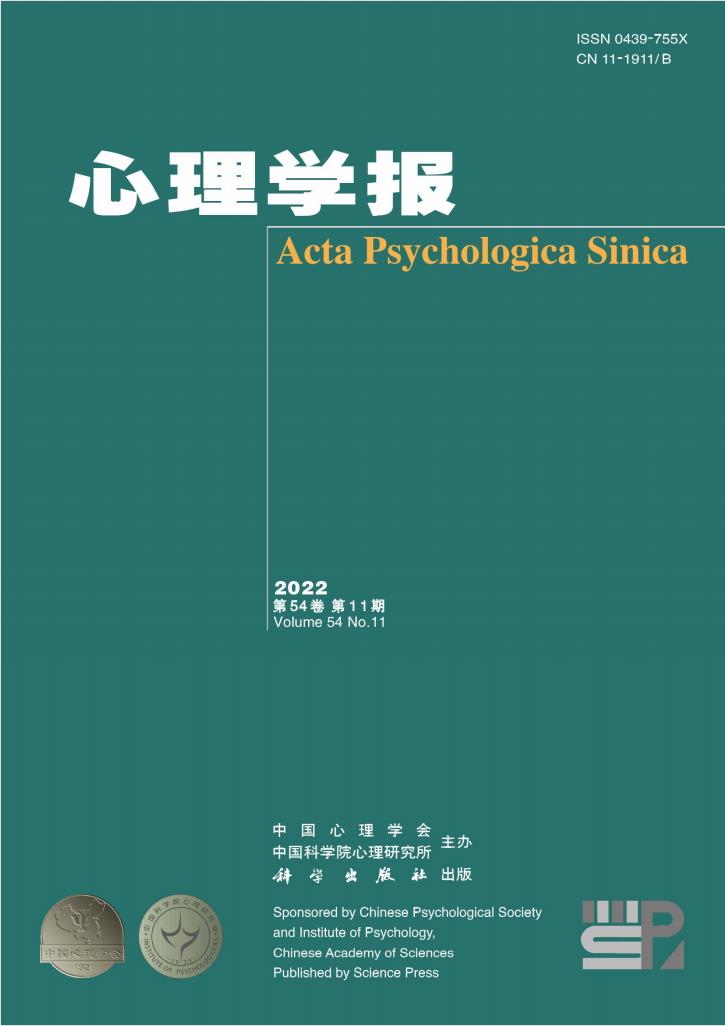Analytical thinking reduces impact bias in affective forecast
IF 1.3
4区 心理学
Q3 PSYCHOLOGY, MULTIDISCIPLINARY
引用次数: 3
Abstract
In experiment 1, a total of 240 undergraduates were assigned to play an ultimatum game as proposers and asked to predict how they would feel when their proposals were accepted or rejected by responders. At random, they were told their proposals were accepted or rejected. As soon as they knew the result, they were asked to report how they felt. Before the ultimatum game began, participants were randomly assigned to view pictures of The Thinker to prime analytical thinking or geometric figures as a control condition. The results showed that analytical thinking reduced impact bias in affective forecasting by reducing the intensity of predicted emotions. In experiment 2, a total of 52 undergraduates took part in a memory test. They were asked to predict how they would feel if their score on a memory test exceeded 90% or not before they took the test. As soon as they knew the result that they did not exceed 90%, they were asked to report how they felt. Before taking the memory test, participants were randomly assigned to perform a verbal fluency task with words related to analytical thinking to prime analytical thinking or to a verbal fluency task with words not related to analytical thinking as a control condition. The results showed that analytical thinking reduced impact bias in affective forecasting by reducing the intensity of predicted emotions. In experiment 3, a total of 111 women who had only one child were asked to predict how they would feel if they had a second. Before predicting their feelings, they were randomly assigned to view pictures of The Thinker to prime analytical thinking or geometric figures as a control condition. Results showed that analytical thinking reduced the positive affect of having the second child but not the negative affect of having the second child. In sum, the present research shows that analytical thinking reduces impact bias in affective forecasting by reducing the intensity of predicted emotions. It can help us reduce impact bias in affective forecasting when making decisions and promote satisfaction with those decisions. Limitations and further research are here discussed as well.分析性思维减少了情感预测中的影响偏差
在实验1中,共有240名本科生被指派作为提议者玩最后通牒游戏,并被要求预测他们的提议被回应者接受或拒绝时的感受。他们被随机告知他们的提议被接受或拒绝。一旦他们知道结果,他们就被要求报告自己的感受。在最后通牒游戏开始之前,参与者被随机分配观看《思想者》的图片,以启动分析思维或几何图形作为控制条件。结果表明,分析思维通过降低预测情绪的强度来减少情感预测中的影响偏差。在实验2中,共有52名本科生参加了一项记忆力测试。他们被要求预测在参加测试之前,如果他们的记忆力测试得分超过90%或不超过90%,他们会有什么感觉。一旦他们知道结果没有超过90%,他们就被要求报告自己的感受。在进行记忆测试之前,参与者被随机分配用与分析思维相关的单词执行语言流利性任务,以启动分析思维,或者用与分析思考无关的单词作为控制条件执行语言流利度任务。结果表明,分析思维通过降低预测情绪的强度来减少情感预测中的影响偏差。在实验3中,共有111名只有一个孩子的女性被要求预测如果她们有第二个孩子会有什么感觉。在预测他们的感受之前,他们被随机分配观看《思想者》的照片,以启动分析思维或几何图形作为控制条件。结果表明,分析思维减少了生二胎的积极影响,但没有减少生二胎带来的消极影响。总之,本研究表明,分析思维通过降低预测情绪的强度来减少情感预测中的影响偏差。它可以帮助我们在做出决策时减少情感预测中的影响偏差,并提高对这些决策的满意度。本文还讨论了局限性和进一步的研究。
本文章由计算机程序翻译,如有差异,请以英文原文为准。
求助全文
约1分钟内获得全文
求助全文
来源期刊

心理学报
Psychology-Psychology (all)
CiteScore
1.70
自引率
13.30%
发文量
1612
期刊介绍:
Acta Psychologica Sinica (ISSN 0439-755X) is a scholarly journal sponsored by the Chinese Psychological Society and the Institute of Psychology, Chinese Academy of Sciences, and published monthly by the Science Press.
Acta Psychologica Sinica has been included in many important national and international indexing systems such as SCOPUS (Elsevier), ESCI (Web of Science), PsycINFO (APA), CSCD. It is the flagship journal of the Chinese Psychological Society that publishes peer-reviewed original empirical studies and theoretical articles spanning the entire spectrum of scientific psychology.
Acta Psychologica Sinica publishes high-quality research that investigates the fundamental mechanisms of mind and behavior and aims to deliver scientific knowledge to enhance our understanding of culture and society. It welcomes submissions of manuscripts reporting research that is up-to-date, scientifically excellent, and of broad interest and significance.
 求助内容:
求助内容: 应助结果提醒方式:
应助结果提醒方式:


